Mercedes AMG GT vs Lamborghini Urus – Which car suits you better?
Two cars, one duel: Mercedes AMG GT meets Lamborghini Urus.
Which one wins in performance, efficiency and value for money? Find out now!
Costs and Efficiency:
Price and efficiency are key factors when choosing a car – and this is often where the real differences emerge.
Mercedes AMG GT has a decisively advantage in terms of price – it starts at 102500 £, while the Lamborghini Urus costs 199400 £. That’s a price difference of around 96944 £.
Fuel consumption also shows a difference: Lamborghini Urus manages with 2.10 L and is therefore decisively more efficient than the Mercedes AMG GT with 10.30 L. The difference is about 8.20 L per 100 km.
As for range, the Lamborghini Urus performs decisively better – achieving up to 60 km, about 49 km more than the Mercedes AMG GT.
Engine and Performance:
Power, torque and acceleration say a lot about how a car feels on the road. This is where you see which model delivers more driving dynamics.
When it comes to engine power, the Mercedes AMG GT has a minimal edge – offering 816 HP compared to 800 HP. That’s roughly 16 HP more horsepower.
In acceleration from 0 to 100 km/h, the Mercedes AMG GT is slightly quicker – completing the sprint in 2.80 s, while the Lamborghini Urus takes 3.30 s. That’s about 0.50 s faster.
In terms of top speed, the Mercedes AMG GT performs hardly perceptible better – reaching 320 km/h, while the Lamborghini Urus tops out at 312 km/h. The difference is around 8 km/h.
There’s also a difference in torque: Mercedes AMG GT pulls distinct stronger with 1420 Nm compared to 950 Nm. That’s about 470 Nm difference.
Space and Everyday Use:
Cabin size, boot volume and payload all play a role in everyday practicality. Here, comfort and flexibility make the difference.
Seats: Lamborghini Urus offers convincingly more seating capacity – 5 vs 2.
In curb weight, Mercedes AMG GT is distinct lighter – 1790 kg compared to 2150 kg. The difference is around 360 kg.
In terms of boot space, the Lamborghini Urus offers decisively more room – 616 L compared to 321 L. That’s a difference of about 295 L.
When it comes to payload, Lamborghini Urus noticeable takes the win – 350 kg compared to 215 kg. That’s a difference of about 135 kg.
Who comes out on top?
Overall, the Lamborghini Urus shows itself to be leaves the rival little chance and secures the title of DriveDuel Champion.
It convinces with the more balanced overall package and proves to be the more versatile choice for everyday use.
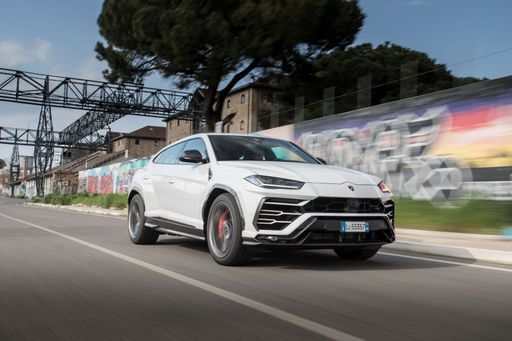
Lamborghini Urus
Mercedes AMG GT
The Mercedes-Benz AMG GT is a striking blend of luxury and performance, capturing the essence of high-performance motoring. With its sleek, aerodynamic design and a roaring engine, it delivers an exhilarating driving experience. Inside, the cabin combines elegance with technology, offering comfort wrapped in premium materials for an immersive journey.
details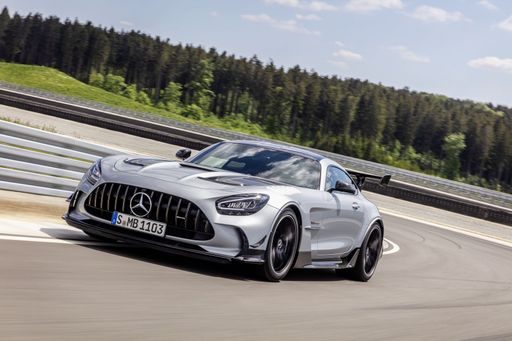 @ group-media.mercedes-benz.com
@ group-media.mercedes-benz.com
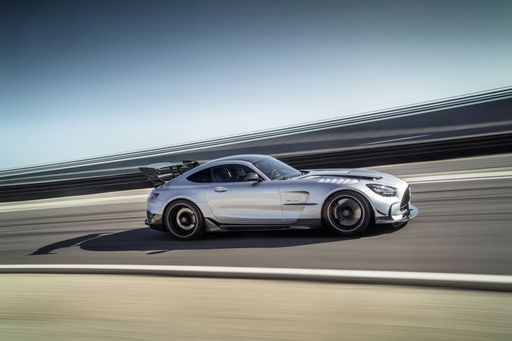 @ group-media.mercedes-benz.com
@ group-media.mercedes-benz.com
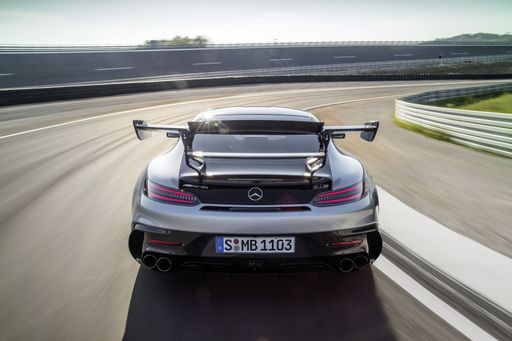 @ group-media.mercedes-benz.com
@ group-media.mercedes-benz.com
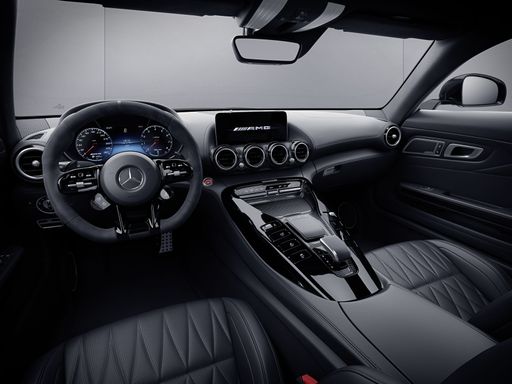 @ group-media.mercedes-benz.com
@ group-media.mercedes-benz.com
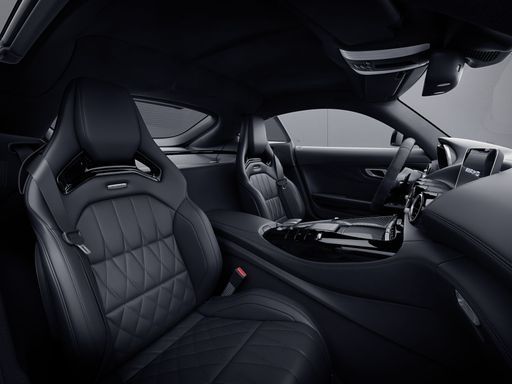 @ group-media.mercedes-benz.com
@ group-media.mercedes-benz.com
Lamborghini Urus
The Lamborghini Urus is a striking blend of performance, luxury, and versatility, embodying the spirit of a supercar in a high-performance SUV form. Its bold design and aggressive lines make a statement on the road, ensuring it stands out in any environment. Inside, the Urus combines premium materials with cutting-edge technology, offering a driving experience that is both exhilarating and comfortable.
details @ Automobili Lamborghini S.p.A.
@ Automobili Lamborghini S.p.A.
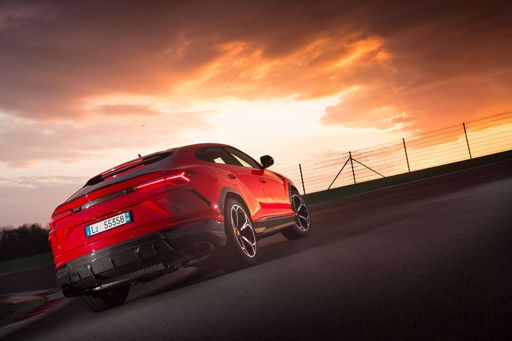 @ Automobili Lamborghini S.p.A.
@ Automobili Lamborghini S.p.A.
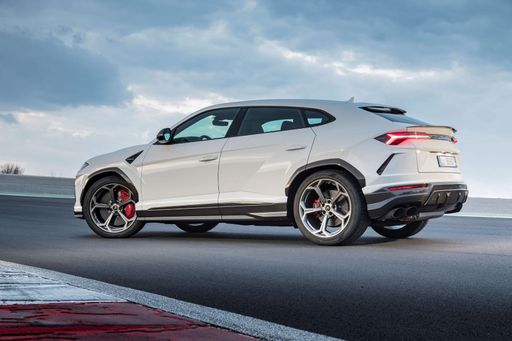 @ Automobili Lamborghini S.p.A.
@ Automobili Lamborghini S.p.A.
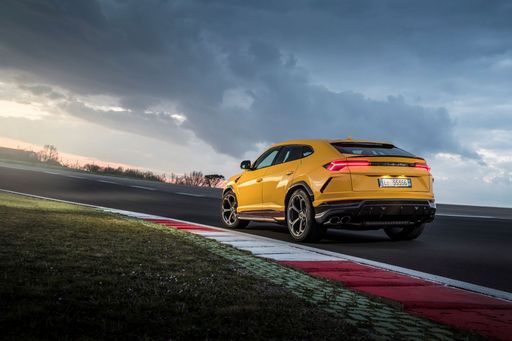 @ Automobili Lamborghini S.p.A.
@ Automobili Lamborghini S.p.A.
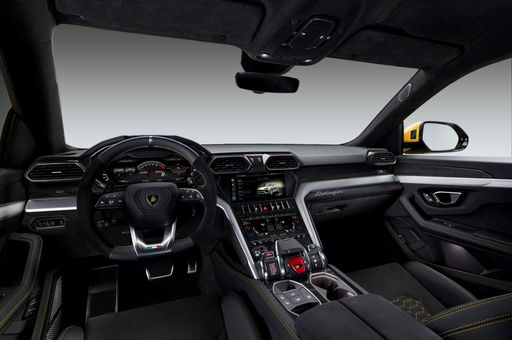 @ Automobili Lamborghini S.p.A.
@ Automobili Lamborghini S.p.A.
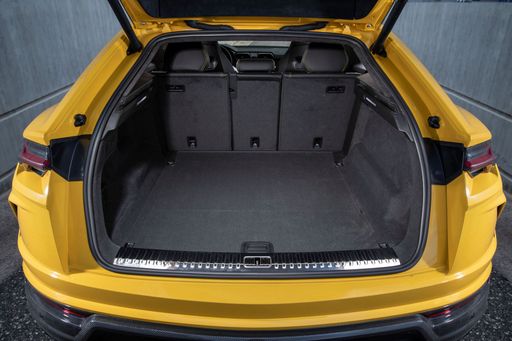 @ Automobili Lamborghini S.p.A.
@ Automobili Lamborghini S.p.A.

|

|
|
|
|
Costs and Consumption |
|
|---|---|
|
Price
102500 - 194400 £
|
Price
199400 - 257100 £
|
|
Consumption L/100km
10.3 - 14 L
|
Consumption L/100km
2.1 - 14.1 L
|
|
Consumption kWh/100km
-
|
Consumption kWh/100km
-
|
|
Electric Range
11 km
|
Electric Range
60 km
|
|
Battery Capacity
-
|
Battery Capacity
-
|
|
co2
235 - 319 g/km
|
co2
51 - 320 g/km
|
|
Fuel tank capacity
70 L
|
Fuel tank capacity
85 L
|
Dimensions and Body |
|
|---|---|
|
Body Type
Coupe
|
Body Type
SUV
|
|
Seats
2
|
Seats
5
|
|
Doors
2
|
Doors
5
|
|
Curb weight
1790 - 2195 kg
|
Curb weight
2150 - 2405 kg
|
|
Trunk capacity
182 - 321 L
|
Trunk capacity
454 - 616 L
|
|
Length
4728 mm
|
Length
5112 - 5137 mm
|
|
Width
1929 mm
|
Width
2018 - 2026 mm
|
|
Height
1354 - 1359 mm
|
Height
1618 - 1638 mm
|
|
Max trunk capacity
-
|
Max trunk capacity
1596 L
|
|
Payload
170 - 215 kg
|
Payload
100 - 350 kg
|
Engine and Performance |
|
|---|---|
|
Engine Type
Petrol MHEV, Petrol, Plugin Hybrid
|
Engine Type
Petrol, Plugin Hybrid
|
|
Transmission
Automatic
|
Transmission
Automatic
|
|
Transmission Detail
Automatic Gearbox
|
Transmission Detail
Automatic Gearbox
|
|
Drive Type
Rear-Wheel Drive, All-Wheel Drive
|
Drive Type
All-Wheel Drive
|
|
Power HP
435 - 816 HP
|
Power HP
666 - 800 HP
|
|
Acceleration 0-100km/h
2.8 - 4.6 s
|
Acceleration 0-100km/h
3.3 - 3.5 s
|
|
Max Speed
280 - 320 km/h
|
Max Speed
305 - 312 km/h
|
|
Torque
500 - 1420 Nm
|
Torque
850 - 950 Nm
|
|
Number of Cylinders
4 - 8
|
Number of Cylinders
8
|
|
Power kW
320 - 600 kW
|
Power kW
490 - 588 kW
|
|
Engine capacity
1991 - 3982 cm3
|
Engine capacity
3996 cm3
|
General |
|
|---|---|
|
Model Year
2025
|
Model Year
2022 - 2024
|
|
CO2 Efficiency Class
G
|
CO2 Efficiency Class
G, B
|
|
Brand
Mercedes-Benz
|
Brand
Lamborghini
|
Is the Mercedes AMG GT offered with different drivetrains?
The Mercedes AMG GT is available as Rear-Wheel Drive or All-Wheel Drive.
The prices and data displayed are estimates based on German list prices and may vary by country. This information is not legally binding.
